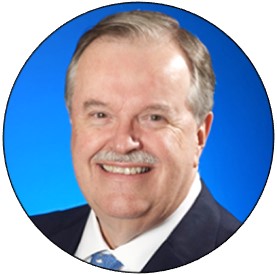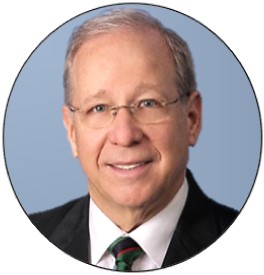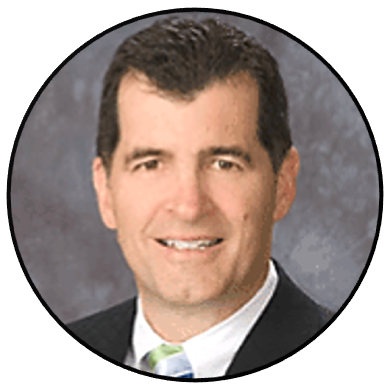What I am worried about, however, is that my wife may outlive her money. At 68, she’s 14 years younger than me. When we were married almost 34 years ago, our age difference didn’t seem like much of a big deal. I was 48 and she was 34. We both were healthy and had no medical issues. My wife still doesn’t have any major medical issues, but I do. I have heart disease, diabetes, high blood pressure and sleep apnea.
When you’re young, you typically do not worry about old-age health issues. I certainly did not, because I didn’t think I would live to be very old.
Well, hello 82!
In all probability I will pre-decease my wife. Her Social Security income will drop, but her house and car insurance, property taxes, homeowner association (HOA) fees and other fixed expenses will not; instead, many of these expenses (especially property taxes as the housing industry continues to improve) likely will increase. And, of course, automobile insurance rates increase as you grow elderly. Plus, HOA fees almost always go up, not down. Did you ever hear of food, travel and entertainment expenses decreasing over time? Silly question, huh?
We always have weighed our expenses versus our income, and have lived faithfully within our budgetary guidelines. If an unexpected expense occurs, we look for ways to cut future spending in order to balance out before year’s end. If an unexpected expense occurs near the end of a calendar year, we carry it over to the next year and work to offset it then.
So far, this planning has worked well for us. It also helps that we are debt-free (and have been for nine years) and do not have to spend budgeted income for interest charges. Such charges are tremendous for big-ticket items such as home mortgages, car payments, credit cards, furniture purchases, etc.
Her IRA suffered substantial losses during the housing bubble burst in 2007 and credit crisis in 2009. These two events caused her to place her remaining funds in a safe haven, but one where it undergoes practically no growth. M wife and I both are victims of the old-age, no-investment-risk-tolerance dilemma.
As defined on the Internet, a reverse mortgage is a loan for senior homeowners, which uses the home’s equity as collateral. The loan generally does not have to be repaid until the last surviving homeowner permanently moves out of the property or passes away.
To be eligible for a reverse mortgage, the Federal Housing Administration (FHA) requires that all homeowners be at least age 62. The home must be owned free and clear or all existing liens must be satisfied with proceeds from the reverse mortgage. These requirements would be no problem for my wife.
Generally speaking, a reverse mortgage loan cannot be outlived and will not become due, as long as at least one homeowner lives in the home as his or her primary residence, continues to pay the required property taxes and homeowners insurance and maintains the home in accordance with FHA requirements. Again, hopefully, no problem
In the event of death or in the event that the home ceases to be the primary residence for more than 12 months, the homeowner’s estate can choose to repay the reverse mortgage loan or put the home up for sale.
If the equity in the home is higher than the balance of the loan when the home is sold to repay the loan, the remaining equity belongs to the estate.
If the sale of the home is not enough to pay off the reverse mortgage, the lender must take a loss and request reimbursement from the FHA. No other assets are affected by a reverse mortgage. For example, investments, second homes, cars, and other valuable possessions cannot be taken from the estate to pay off a reverse mortgage.
The amount that is available generally depends on four factors: age (older is better), current interest rate, appraised value of the home and government-imposed lending limits.
Reverse mortgages aren’t good for everyone, and may have considerable downsides. Anyone considering a reverse mortgage should seek counseling.
I hope my wife does not have to obtain a reverse mortgage —she wants to leave as much as she possibly can to her three sons—and can live out her life on her available funds.
Then I could rest in peace.
This Website Is For Financial Professionals Only
|
|
|
MEMBER REVIEWS
|
 |
|
William Desormeau, Jr.
|
|
It is not possible for me to overstate the cumulative value that Craig, Bob and Fritz have added for over 10 years to my investment advisory practice, as well as for personal and family financial planning. A4A gets my highest recommendation
|
 |
|
Lynn Najman, CFP®
|
|
I’ve subscribed to A4A since its inception, and always find it intellectually stimulating and on point. It’s one of the few CE solutions out there that doesn’t waste my time by pushing product or talking down to me.
|
|
|
| Pete Deacon, CPA, CFP® |
| A4A has had a profound effect on my business. Since 2009, I’ve relied on the consistent messaging and updates to run my business successfully. Being able to present the information from Bob, Fritz, and Craig's ongoing CE webinars has been a significant benefit. |
|
|
| Fredric Mayerson, MBA, PhD, CFP® |
| I've been a financial professional and professor of finance for 35 years and find Fritz Meyer and Robert Keebler to be among the most engaging, incredibly knowledgeable, and experienced presenters I’ve encountered. They deliver an extraordinary amount of information in an extremely interesting way — sequentially and developmentally, utilizing pedagogical tools and techniques that few possess. A4A to is the most consistently excellent CE program available. |
 |
| Ron Roge, MS, CFP® |
| I’ve been attending A4A many years because the CE classes are outstanding, and my time is valuable. Though I have over 35 years of experience, I’m always learning something new on A4A. I attend fewer conferences now because the CE is generally not advanced. If you want to learn from the best, in a faster, easier, and less expensive way, I highly recommend A4A. |
 |
|
John R. Day, CPA/PFS® |
|
I’ve been a member since 2011 and never miss the monthly webinars with Fritz Meyer. I appreciate Fritz’s independent views on the economy and markets and Bob Keebler keeps me updated on excellent tax planning ideas. A4A is a great value! |
 |
|
Norman Politziner, CFP |
|
I wouldn't miss a Fritz Meyer webinar unless my pants were on fire. I've relied on Andrew Gluck's knowledge systems --client communications and CE -- for two decades. It's simply the best solution for tax, financial, investment, and risk-management professionals.® |
|
|
|
Dan Hawley, CFP® |
|
A4A, for over a decade, has been a great resource for useful and accurate information and CE. A4A and Advisor Products are bargains for an advisory practice. |
|
|
Kevin Brosious, MBA, CFP®, CPA/PFS® |
|
I get CPA CE credit and CFP credit for the webinars. But not only that, the A4A content is terrific |
|
|
|
|
|
|












